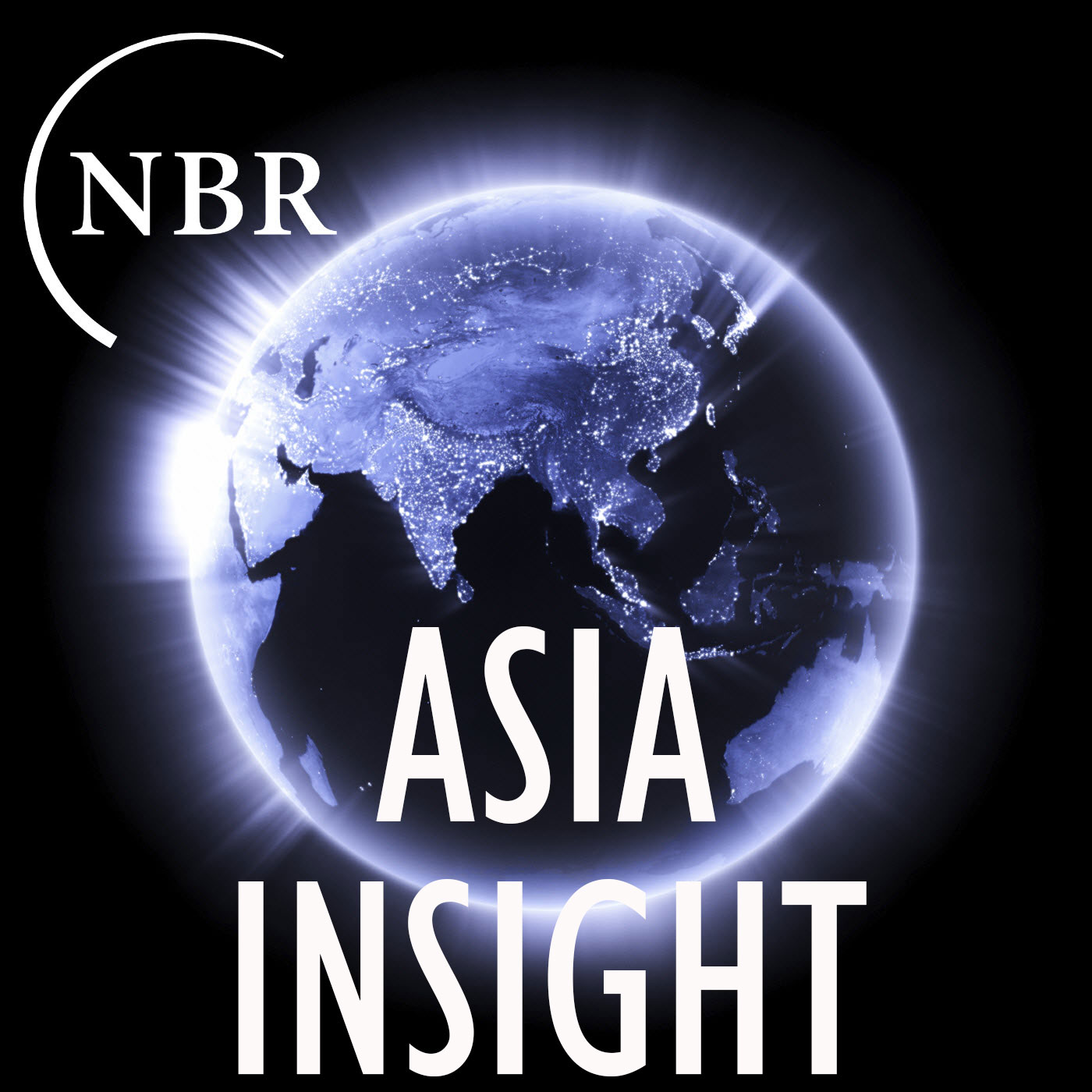Episodes

Thursday Sep 25, 2025
Thursday Sep 25, 2025
From the National Bureau of Asian Research, an Asia Insight miniseries exploring the geostrategic significance of China’s borderlands, led by Nadège Rolland, Distinguished Fellow for China Studies at NBR.
Episode Two: A Hundred Years of CCP Borderlands Policies
The Chinese Communist Party’s borderlands policies fluctuated over time since its founding, alternating between periods of gradual integration and forced assimilation. Regardless of the methods used, the Party’s goal has remained the same: to meld all these regions and their people into a coherent national whole.
This second episode examines how the notions of Borderlands, of nation-building, and of ethnic policies have been intimately intertwined throughout the hundred years of CCP existence. With contributions from Professor Benno Weiner (Carnegie Mellon University), Professor Robert Barnett (School of Oriental and African Studies, University of London and Lau China Institute, King’s College), and Professor James Leibold (La Trobe University).
Materials cited or referenced in the recording
- Benno Weiner, The Chinese Revolution on the Tibetan Frontier (Ithaca: Cornell University Press, 2020)
- Andrew Martin Fisher, The Disempowered Development of Tibet in China: A Study in the Economics of Marginalization (Plymouth: Lexington Books, 2014)
- Fei Xiaotong [费孝通], The Chinese Nation’s Diversity to Unity Model [中华民族多元一体格局] (Beijing: Central University for Nationalities Press, 1989)
- Ernest Renan, “What is a Nation?” (speech delivered at the Sorbonne University, Paris, on March 11, 1882)
Glossary of Chinese terms used in the recording
- Minzu 民族 nation, nationality(ies), ethnic group(s)
- Shaoshu minzu 少数民族 ethnic minorities
- Minzu tuanjie 民族团结 ethnic/national unity
- Minzu gongzuo 民族工作 ethnic policy work / nation building work
- Duoyuanyiti 多元一体 diversity within unity / plurality and unity / multiple origins, one body / from diversity towards unity
- Zhonghua minzu 中华民族 Chinese nation
- Zhulao 铸牢 to forge
- Zhuhun 铸魂 to cast souls
- Zhonghua minzu gongtongti yishi 中华民族共同体意识 collective consciousness of the Chinese nation / a strong sense of community for the Chinese nation
Recommended additional readings
- Uradyn E. Bulag, “Good Han, Bad Han: The Moral Parameters of Ethnopolitics in China,” in Thomas Mullaney et.al. (Eds.) Critical Han Studies: The History, Representation, and Identity of China’s Majority (Berkeley: University of California Press, 2012)
- Vanessa Frangville, “‘Unity Within Diversity’: The Chinese Communist Party’s Construction of the Chinese Nation,” in Jérôme Doyon et.al. (Eds.) The Chinese Communist Party: A 100-Year Trajectory (Canberra: Australian National University Press, 2024)
- James Leibold, “Toward A Second Generation of Ethnic Policies?” Jamestown China Brief 12(13) July 7, 2012
- James Leibold, “Ethnic Policy in China: Is Reform Inevitable?” East-West Center Policy Studies 68, 2013
- Benno Weiner, “‘This Absolutely Is Not a Hui Rebellion!’: The Ethnopolitics of Great Nationality Chauvinism in Early Maoist China,” Twentieth-Century China 48(3) 2023


No comments yet. Be the first to say something!